Treatment cost

Apart from in-detail treatment procedures available, Geneva Women Care located in Geneva, Switzerland has a wide variety of facilities available for International Patients. Some of the facilities which are provided by them are Accommodation, Airport Transfer, TV inside room. Also listed below are some of the most prominent infrastructural details:

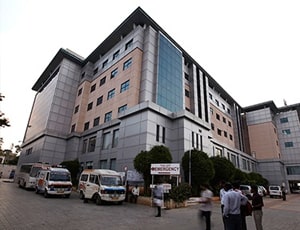
Types of Microwave Endometrial Ablation in BGS Gleneagles Global Hospitals and its associated cost
| Treatment Option | Approximate Cost Range (USD) | Approximate Cost Range (INR) |
|---|---|---|
| Microwave Endometrial Ablation (Overall) | 4518 - 7438 | 376842 - 601077 |
| Type 1 Microwave Endometrial Ablation | 3894 - 6678 | 319215 - 541870 |
| Type 2 Microwave Endometrial Ablation | 5037 - 7930 | 406573 - 645474 |
DOCTORS IN 14 SPECIALITIES
FACILITIES & AMENITIES
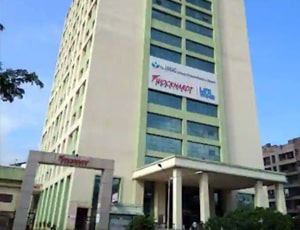
Types of Microwave Endometrial Ablation in Wockhardt Hospital, Umrao and its associated cost
| Treatment Option | Approximate Cost Range (USD) | Approximate Cost Range (INR) |
|---|---|---|
| Microwave Endometrial Ablation (Overall) | 4075 - 6582 | 334111 - 542407 |
| Type 1 Microwave Endometrial Ablation | 3538 - 6068 | 291572 - 497177 |
| Type 2 Microwave Endometrial Ablation | 4561 - 7109 | 372979 - 583815 |
DOCTORS IN 13 SPECIALITIES
FACILITIES & AMENITIES
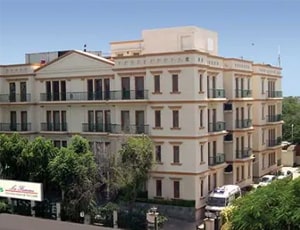
Types of Microwave Endometrial Ablation in Fortis La Femme, Greater Kailash II and its associated cost
| Treatment Option | Approximate Cost Range (USD) | Approximate Cost Range (INR) |
|---|---|---|
| Microwave Endometrial Ablation (Overall) | 4042 - 6574 | 333759 - 542507 |
| Type 1 Microwave Endometrial Ablation | 3551 - 6091 | 291671 - 499739 |
| Type 2 Microwave Endometrial Ablation | 4552 - 7126 | 373277 - 585444 |

Types of Microwave Endometrial Ablation in Indraprastha Apollo Hospital and its associated cost
| Treatment Option | Approximate Cost Range (USD) | Approximate Cost Range (INR) |
|---|---|---|
| Microwave Endometrial Ablation (Overall) | 4588 - 7194 | 373753 - 607532 |
| Type 1 Microwave Endometrial Ablation | 3947 - 6742 | 322631 - 551496 |
| Type 2 Microwave Endometrial Ablation | 5066 - 7738 | 421768 - 652185 |
DOCTORS IN 14 SPECIALITIES
FACILITIES & AMENITIES
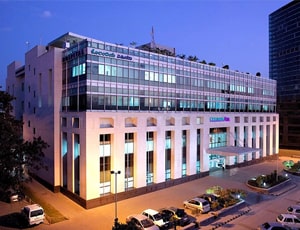
Types of Microwave Endometrial Ablation in Manipal Hospital, Yeshwantpur and its associated cost
| Treatment Option | Approximate Cost Range (USD) | Approximate Cost Range (INR) |
|---|---|---|
| Microwave Endometrial Ablation (Overall) | 4422 - 7174 | 366690 - 591149 |
| Type 1 Microwave Endometrial Ablation | 3998 - 6679 | 317774 - 543153 |
| Type 2 Microwave Endometrial Ablation | 5059 - 8045 | 422806 - 634984 |
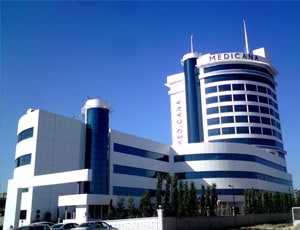
Types of Microwave Endometrial Ablation in Medicana Konya Hospital and its associated cost
| Treatment Option | Approximate Cost Range (USD) | Approximate Cost Range (TRY) |
|---|---|---|
| Microwave Endometrial Ablation (Overall) | 5722 - 7946 | 170010 - 235024 |
| Type 1 Microwave Endometrial Ablation | 5109 - 7430 | 149336 - 220075 |
| Type 2 Microwave Endometrial Ablation | 5515 - 8386 | 170276 - 256547 |
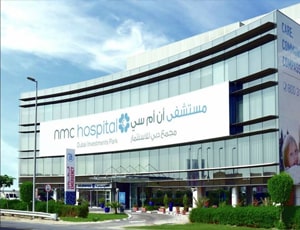
Types of Microwave Endometrial Ablation in NMC Royal Hospital, DIP and its associated cost
| Treatment Option | Approximate Cost Range (USD) | Approximate Cost Range (AED) |
|---|---|---|
| Microwave Endometrial Ablation (Overall) | 5487 - 8141 | 20212 - 29762 |
| Type 1 Microwave Endometrial Ablation | 4259 - 6974 | 15513 - 25878 |
| Type 2 Microwave Endometrial Ablation | 5419 - 8679 | 19403 - 31561 |
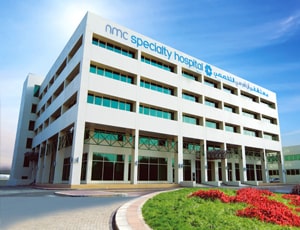
Types of Microwave Endometrial Ablation in NMC Specialty Hospital - Al Ain and its associated cost
| Treatment Option | Approximate Cost Range (USD) | Approximate Cost Range (AED) |
|---|---|---|
| Microwave Endometrial Ablation (Overall) | 5394 - 8202 | 19453 - 29833 |
| Type 1 Microwave Endometrial Ablation | 4311 - 6906 | 15985 - 25293 |
| Type 2 Microwave Endometrial Ablation | 5371 - 8680 | 19965 - 32077 |
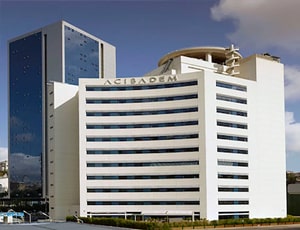
Types of Microwave Endometrial Ablation in Acibadem Fulya Hospital and its associated cost
| Treatment Option | Approximate Cost Range (USD) | Approximate Cost Range (TRY) |
|---|---|---|
| Microwave Endometrial Ablation (Overall) | 5708 - 7916 | 170221 - 237553 |
| Type 1 Microwave Endometrial Ablation | 5122 - 7434 | 154177 - 216404 |
| Type 2 Microwave Endometrial Ablation | 5600 - 8619 | 167983 - 253821 |
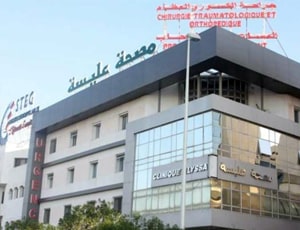
Apart from in-detail treatment procedures available, Clinic Alyssa located in Tunis, Tunisia has a wide variety of facilities available for International Patients. Some of the facilities which are provided by them are Accommodation, Airport Transfer, Interpreter, SIM, TV inside room. Also listed below are some of the most prominent infrastructural details:
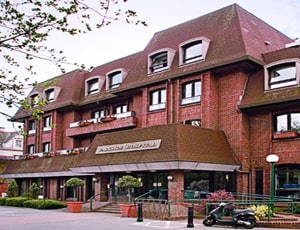
Apart from in-detail treatment procedures available, Parkside Private Hospital located in London, United Kingdom has a wide variety of facilities available for International Patients. Some of the facilities which are provided by them are Accommodation, Airport Transfer, Choice of Meals, Interpreter, SIM, TV inside room. Also listed below are some of the most prominent infrastructural details:
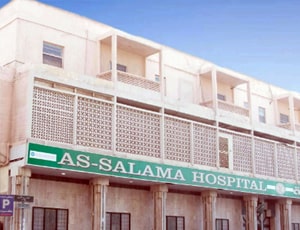
Apart from in-detail treatment procedures available, NMC As Salama Hospital located in Al Khobar, Saudi Arabia has a wide variety of facilities available for International Patients. Some of the facilities which are provided by them are Accommodation, Airport Transfer, Choice of Meals, Interpreter, SIM, TV inside room. Also listed below are some of the most prominent infrastructural details:
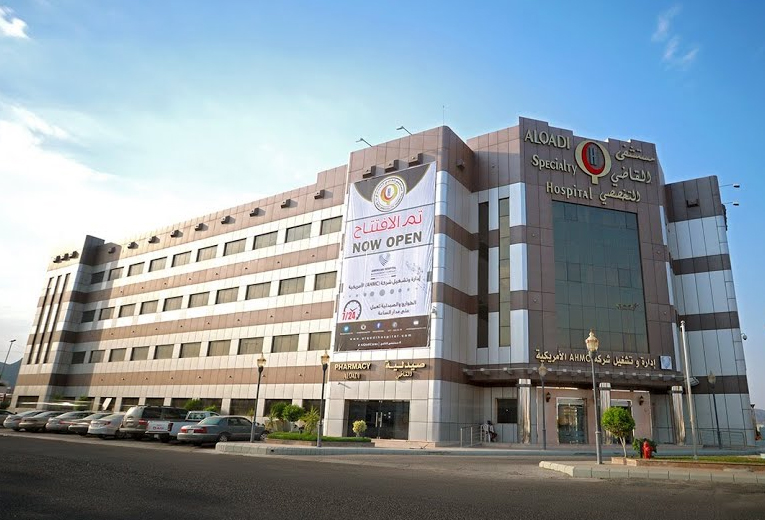
Apart from in-detail treatment procedures available, NMC Al Qadi Specialty Hospital located in Najran, Saudi Arabia has a wide variety of facilities available for International Patients. Some of the facilities which are provided by them are Accommodation, Airport Transfer, Choice of Meals, Interpreter, SIM, TV inside room. Also listed below are some of the most prominent infrastructural details:
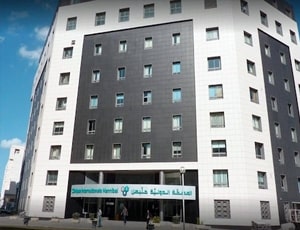
Apart from in-detail treatment procedures available, Hannibal International Clinic located in Tunis, Tunisia has a wide variety of facilities available for International Patients. Some of the facilities which are provided by them are Accommodation, Airport Transfer, Choice of Meals, Interpreter, SIM, TV inside room. Also listed below are some of the most prominent infrastructural details:
Endometrial ablation is an outpatient procedure that is used to remove the endometrial lining in the uterus of a woman suffering from unusually high menstrual bleeding. During the procedure, the endometrium is ablated or destroyed with the help of laser or microwave.
Endometrial ablation surgery is not recommended for women who wish to conceive in the future. This is because this procedure may permanently damage the layers of the uterus and the endometrium may no longer be suitable for the attachment of the developing fetus.
Uterine ablation is most commonly recommended for women who suffer from heavy menstrual bleeding and do not wish to undergo hysterectomy or the surgical removal of the uterus. This procedure is either conducted at the doctor’s office or at a hospital. It can be conducted under local or light anesthesia or general or spinal anesthesia.
Uterine ablation is not recommended for patients who have:
Before the actual start of the procedure, the doctor first widens the cervix so that different tools can pass through the vagina. The cervix is dilated with the help of medications or a series of rods that eventually increase the diameter of the cervix.
There are different ways to perform endometrial ablation. In electrosurgery, the inside of the uterus is seen with the help of a scope. A wire loop is heated and inserted into the uterus to ablate the endometrium. In the case of cryoablation, two to three ice balls are used to destroy the endometrium. Some of the other methods used to ablate or destroy the endometrium include a heated balloon, radiofrequency, and free-flowing hot liquid.
One of the most popular options nowadays is microwave endometrial ablation. In this procedure, a wand that emits microwaves is inserted into the uterus. The microwaves heat the endometrial layer. The procedure lasts for around three to five minutes.
Endometrial ablation recovery is rather quick. Women who undergo endometrial ablation may experience menstrual-like cramps for a few days. Such patients are prescribed painkillers to manage cramping and pain. Additionally, they may also experience a discharge of watery fluid, which is sometimes mixed with blood. The discharge, however, stops within a few days. During the first 24 hours of the procedure, such patients may experience frequent urge to urinate.
Ask your healthcare adviser for the best multiple options and choose the one that meets your expectations
Microwave Endometrial Ablation cost in Switzerland varies from one hospital to the other. The Microwave Endometrial Ablation package cost usually includes all the expenses related to pre and post surgery expenses of the patient. The treatment cost usually includes the expenses related to hospitalization, surgery, nursing, medicines, and anesthesia. Post-surgical complications, new findings and delayed recovery may have an impact on the total Microwave Endometrial Ablation cost in Switzerland.
There are many hospitals that perform Microwave Endometrial Ablation in Switzerland. The top hospitals for Microwave Endometrial Ablation in Switzerland include the following:
After Microwave Endometrial Ablation in Switzerland, the patient is supposed to stay in guest house for another 10 days. This period is important to conduct all the follow-up tests to ensure that the surgery was successful and the patient can go back to the home country.
There are certain additional cost that the patient has to pay apart from the Microwave Endometrial Ablation cost. The extra charges may start from USD 50 per person.
There are many cities that offer Microwave Endometrial Ablation in Switzerland, including the following:
The patient is supposed to stay at the hospital for about 1 days after Microwave Endometrial Ablation for monitoring and care. The doctors team review the patient's recovery during this time with the help of blood tests and imaging scans. Once they feel that everything is on track, the patient is discharged.
There are more than 1 hospitals that offer Microwave Endometrial Ablation in Switzerland. Such hospitals have the required infrastructure and a dedicated unit where patients can be treated. Such hospitals follow all legal protocols and guidelines as specified by the local medical affairs body when it comes to the treatment of international patients.